Diesel trucks are a major source of emissions, putting the United States’ climate targets at risk.
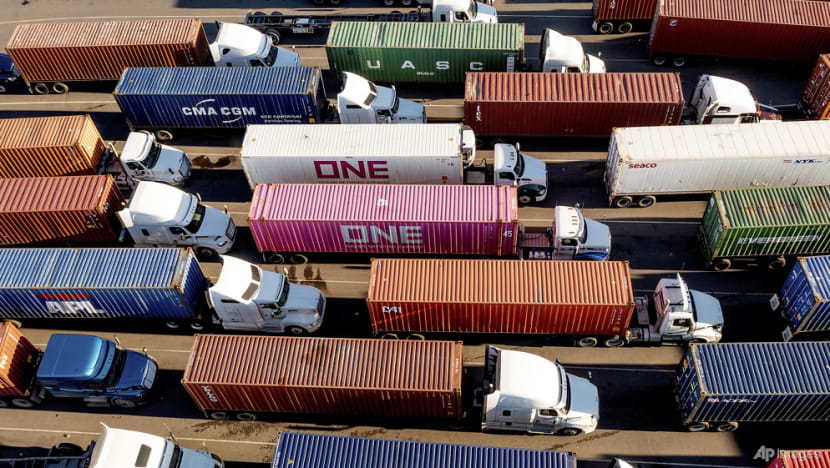 Trucks line up to enter a shipping terminal on Nov 10, 2021, in Oakland, California. (Photo: AP)
Trucks line up to enter a shipping terminal on Nov 10, 2021, in Oakland, California. (Photo: AP)
New: You can now listen to articles.

Sorry, the audio is unavailable right now. Please try again later.
This audio is AI-generated.
BAKERSFIELD, California: California will require all trucks in the state to switch to zero-emission vehicles by 2042, under ambitious plans to decarbonise the trucking sector and promote electric fleets.
The trucking industry is a major component of the American economy, shuttling goods from around the world to every corner of the United States.
But diesel trucks are a major source of emissions, putting the country's climate targets at risk.
California faces a mammoth task of getting truckers to make the transition from these heavily-polluting trucks to clean-energy vehicles. It will also need thousands of charging stations to support such vehicles.
HUGE AMOUNT OF CHARGING INFRASTRUCTURE NEEDED
If the most populous state in the US can overcome the many roadblocks and implement its plans successfully, it will be a major development for trucking in the country, said observers.
Some electric vehicle-charging businesses are looking to cash in on the plans to electrify truck fleets in the state.
Electric truck charging infrastructure developer WattEV, for instance, is opening electric-truck charging stations across the state, and has plans to build more throughout the country.
The initiative, partly funded by federal grants, comes as a result of California’s planned mandates for diesel truck emissions.
WattEV CEO and co-founder Salim Youssefzadeh said: “As we build more and more depots, as we get faster charging technology, then we can start expanding beyond the short- and middle-mile and going towards long-haul freight as well.”
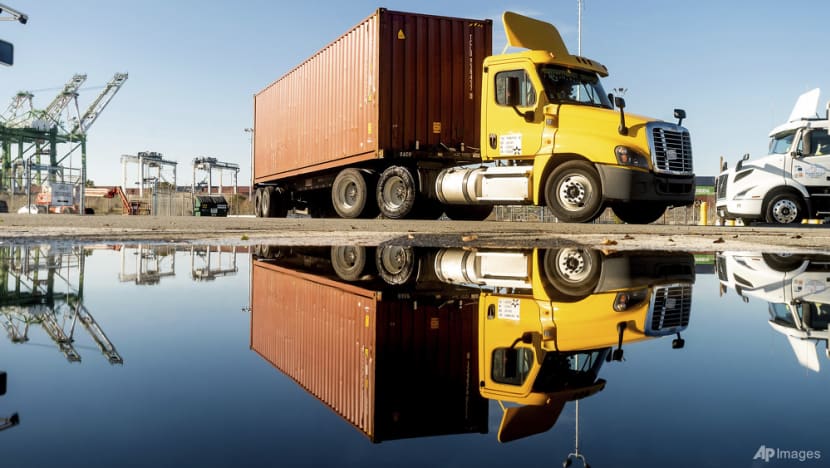 FILE - A truck departs from a Port of Oakland shipping terminal on Nov. 10, 2021, in Oakland, Calif. On Friday, April 28, 2023, California regulators voted to end the sale of new diesel-powered big rigs and buses in the state by 2036. (AP Photo/Noah Berger, File)
FILE - A truck departs from a Port of Oakland shipping terminal on Nov. 10, 2021, in Oakland, Calif. On Friday, April 28, 2023, California regulators voted to end the sale of new diesel-powered big rigs and buses in the state by 2036. (AP Photo/Noah Berger, File)
Electric vehicle charging infrastructure will be critical for California’s plans to decarbonise the trucking sector, said observers, adding that the impact would be significant.
Heavy-duty vehicles make up about 10 per cent of all vehicles on US roads, but they generate more than 25 per cent of global warming emissions and 45 per cent of harmful nitric oxide emissions.
TRUCKING GROUP CHALLENGES STATE'S ZERO-EMISSIONS RULE
However, there has been some pushback against the aggressive emissions-slashing mandate.
The California Trucking Association, the largest trucking trade group in the state, has filed a federal lawsuit challenging the plan, saying it is "a vast overreach" that threatens the sector’s survival.
Some truckers shared with CNA their concerns over various issues, from the high cost of electric trucks to the long charging times.
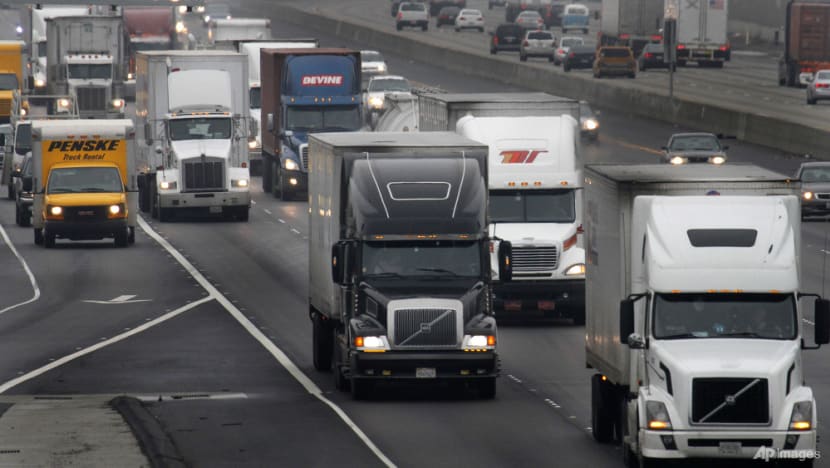 FILE - Trucks make their way on eastbound I-580 on Dec. 17, 2010, in Livermore, Calif. President Joe Biden's administration cleared the way for California's plan to phase out a wide range of diesel-powered trucks, a part of the state's efforts to drastically cut planet-warming emissions and improve air quality in heavy-traffic areas. (AP Photo/Ben Margot, File)
FILE - Trucks make their way on eastbound I-580 on Dec. 17, 2010, in Livermore, Calif. President Joe Biden's administration cleared the way for California's plan to phase out a wide range of diesel-powered trucks, a part of the state's efforts to drastically cut planet-warming emissions and improve air quality in heavy-traffic areas. (AP Photo/Ben Margot, File)
“Electric trucks are good if you're in, like, a 500-mile radius,” said truck driver Aman Singh. “But more than that, I think it's better to have diesel trucks.”
Another truck driver James Awshek said: “It's kind of too much regulation where it's going to be a little bit harsh for the driver, then the driver will lose interest coming to California. This will cause the shippers a lot of problems.”
Anticipating these challenges, WattEV said that it plans to offer “shipping as a service”, in addition to charging.
Mr Youssefzadeh said his company offers these shippers an opportunity to move their loads using zero-emissions trucks, adding: “From the shipper's perspective, a lot of them have sustainability goals that they want to meet and they don't want to disrupt their existing value chain in terms of how shipment and loads flow.”



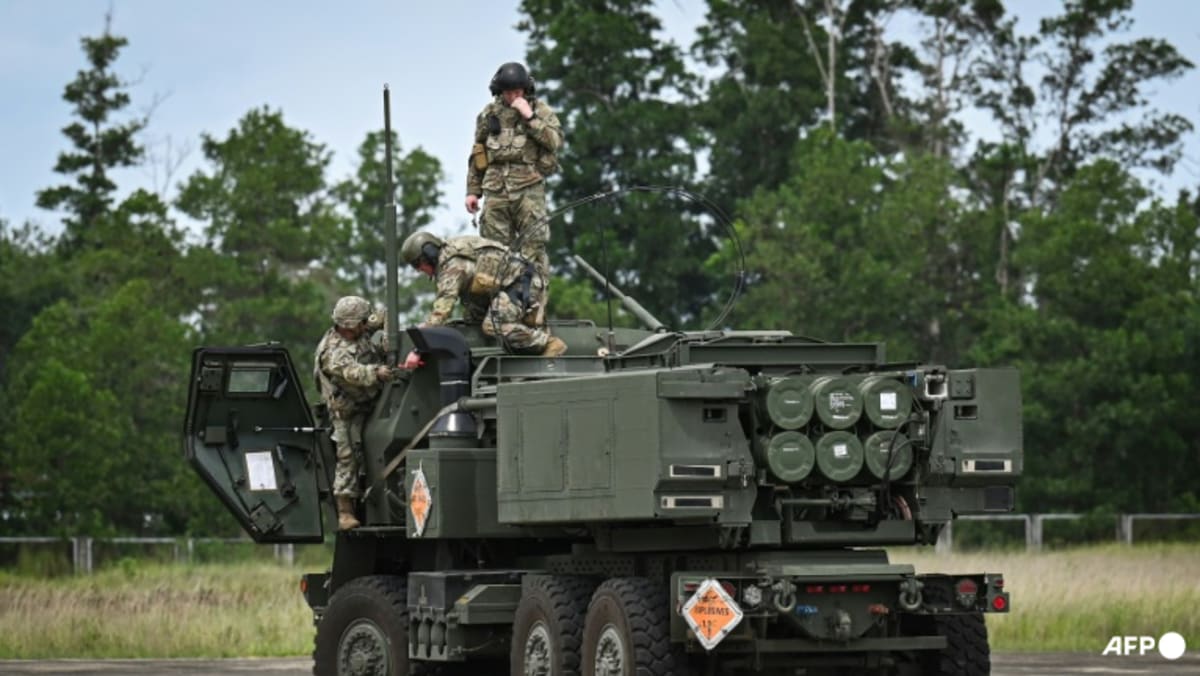
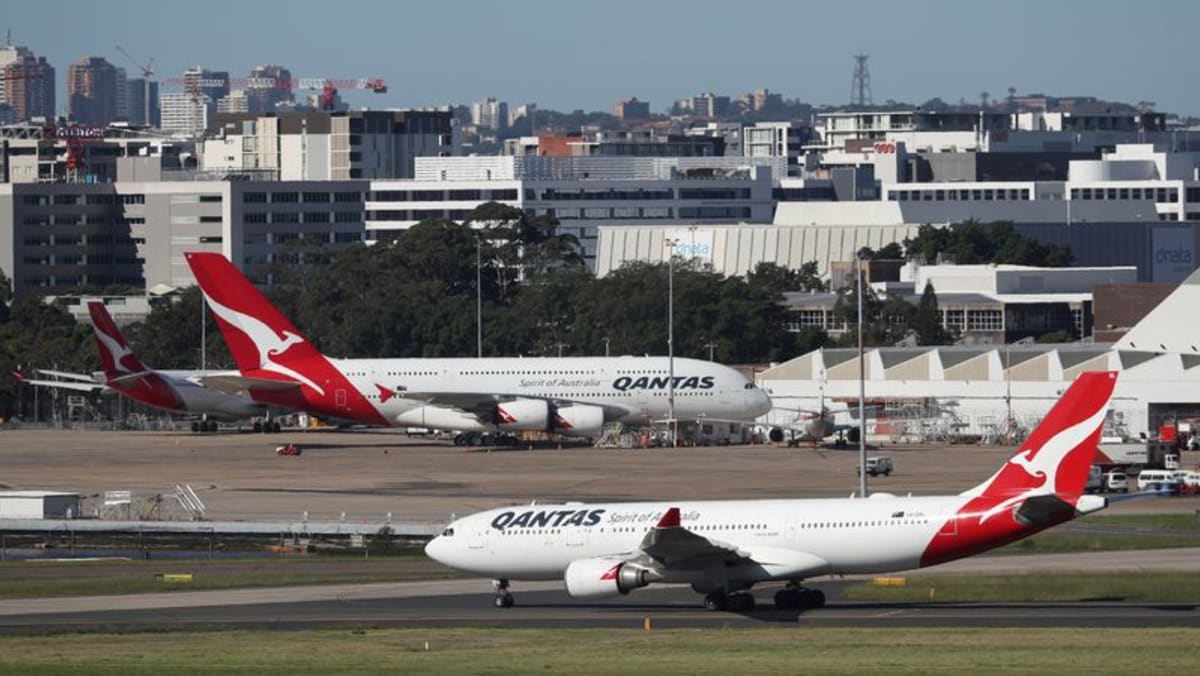









 English (US) ·
English (US) ·  Turkish (TR) ·
Turkish (TR) ·